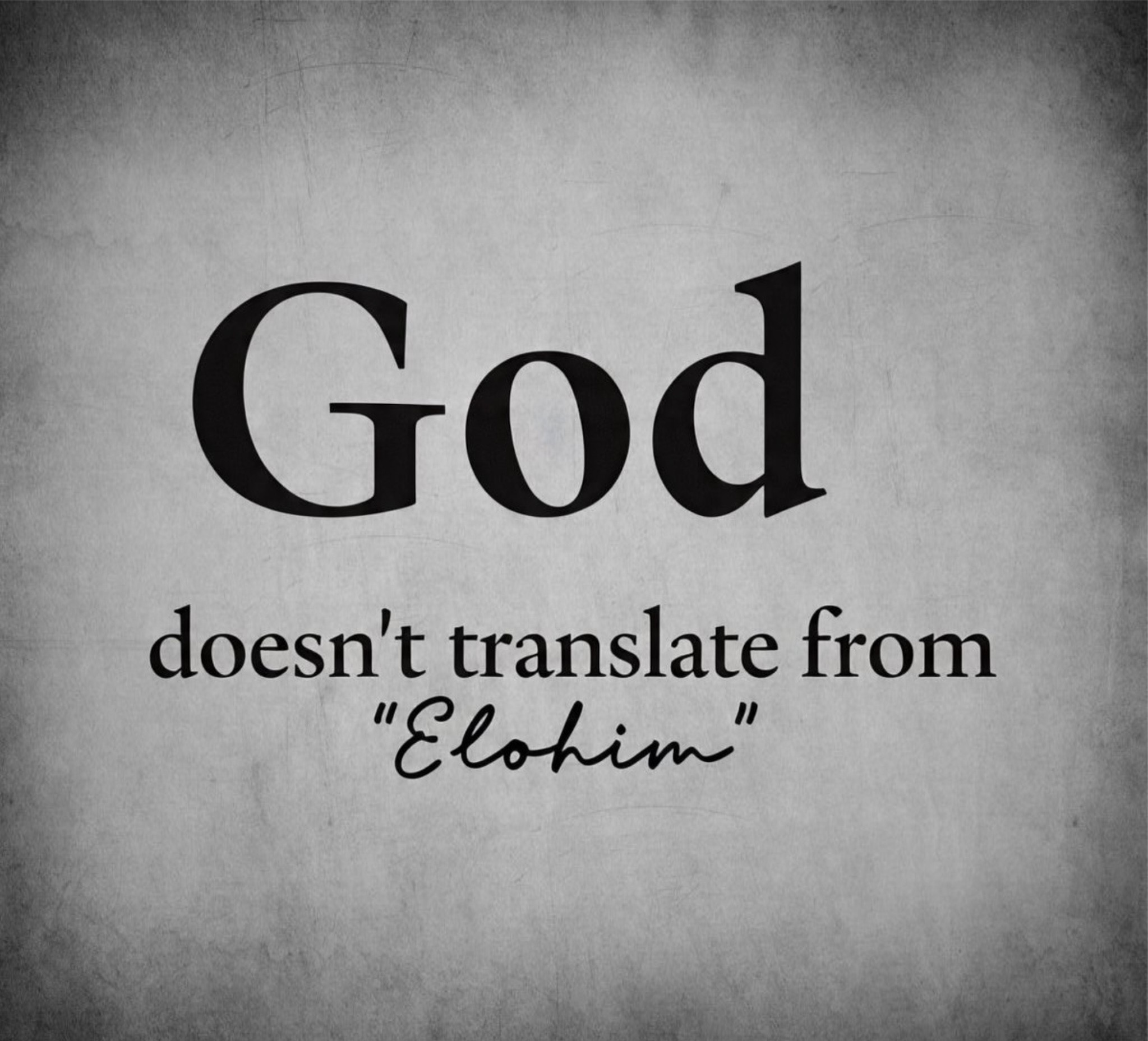Watch
Events
Articles
Market
More
No one in the Bible was referring to the Elohim of the Bible as “God” since only the pagan Saxons were worshiping entities each called “God” and not till about 1000 years later and anoiy 6000 miles away.
And despite the determination of theologians in the west repeating the nonsense doctrines, “God” is not a translation of Elohim which is rightly rendered as Mighty One, Majesty, Force, Power, etc. (Or the plural depending on context.)
But never God.
And the local Canaanite idol called “Gad” sounds exactly the same as “God” so one saying they worship God in that day and locale would rightly be executed as an idol worshipper. Or else have to try to explain that they are referring to YHWH by a title from a pagan people far away yet unborn and a location far removed, not yet established, and completely irrelevan, which would also likely result in a death penalty for idolatry if not sorcery.
question everything
get biblical
templecrier.com/paganism
https://storage.googleapis.com..../production-ipage-v1




Henk Wouters
now you may have noticed i'm trying to figure out what's going on with the singular and plural iterations of El.
this is what you said
- “God” is not a translation of Elohim which is rightly rendered as Mighty One, Majesty, Force, Power, etc. (Or the plural depending on context.) -
now, i have no issue around that three letter word, but, to be pedantic, Elohim would more be Mighty Ones, Majesties, etc (or, the singular, depending on context.)
i do understand what you mean of course.
my question is in what way do you understand the plural or single usage is understood in some way out of the context where it's used?
Delete Comment
Are you sure that you want to delete this comment ?